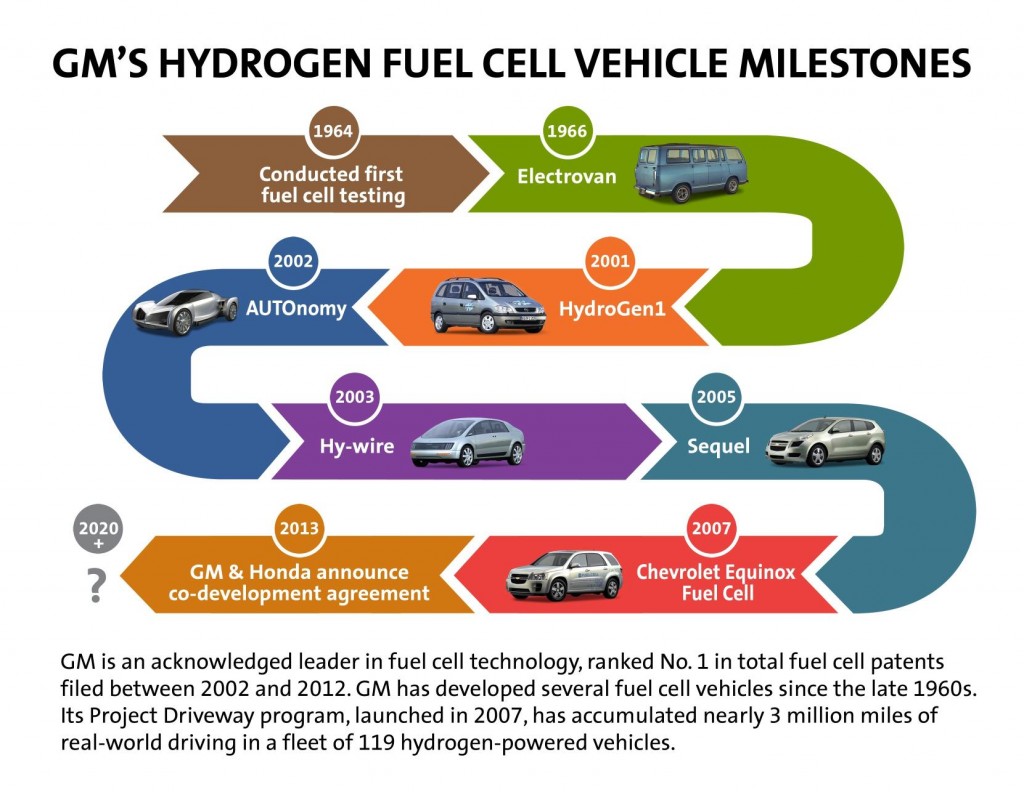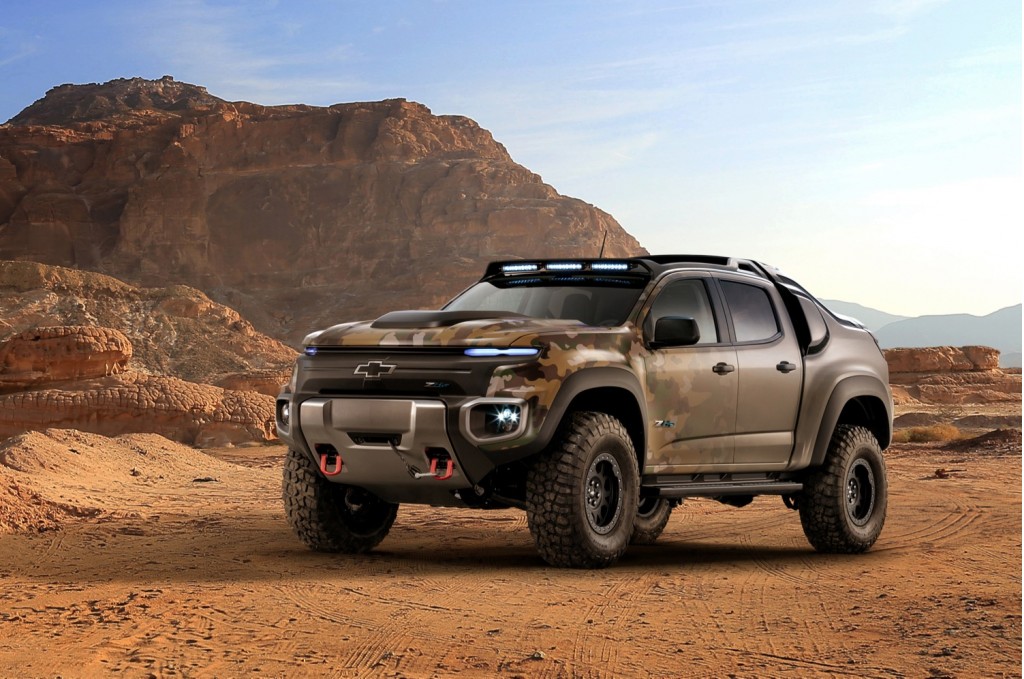Battery-electric cars are being delivered in volume today, but planned hydrogen fuel-cell vehicles from major automakers are on a more gradual timeframe.
This morning, General Motors and Honda jointly announced that the two companies would establish a joint venture to produce hydrogen fuel-cell systems for future products from each carmaker.
Located within GM's existing battery plant in Brownstown, Michigan, it will start mass production "around 2020," the companies said.
DON'T MISS: Honda, GM To Build Factory For Fuel-Cell Production By 2025 (Jan 2016)
Formally dubbed Fuel Cell System Manufacturing LLC, the new unit is funded equally by the two makers, each of which has contributed to its total cost of $85 million.
Honda and GM first said in July 2013 that they would share their fuel-cell development efforts.
A year ago, the two companies took a further step in their partnership by announcing that they'd set up a joint factory to manufacture fuel-cell stacks, with a goal of production by 2025 at the latest.

2017 Honda Clarity Fuel Cell
Each company will use the shared technology in its own vehicles, however.
The 2017 Honda Clarity Fuel Cell sedan that went on sale in California last month, rated at 366 miles of range, uses the current generation of Honda's fuel-cell technology.
The Brownstown plant is expected to build a next-generation fuel-cell stack that has been jointly developed by the two companies together.
CHECK OUT: GM, Honda Latest Automakers To Collaborate On Fuel Cell Tech (Jul 2013)
Toward that end, the companies "integrated their development teams and shared hydrogen fuel cell intellectual property" to cut costs through common sourcing and economies of scale, according to this morning's release.
“GM and Honda are making a dramatic step toward lower cost, higher-volume fuel cell systems,” said Charlie Freese, GM executive director of Global Fuel Cell Business.

GM's Hydrogen Fuel Cell Vehicle Milestones
"Precious metals have been reduced dramatically," he added, resulting in "a lower-cost system that is a fraction of the size and mass" of current systems.
That includes more than 2,200 separate patents between them for inventions in not only the stack itself but also high-pressure storage technology for onboard hydrogen fuel.
WATCH THIS: 2017 Honda Clarity Fuel Cell At LA Auto Show: Video
Each will appoint three executives to a board of directors that will run the joint venture. The position of president will rotate between the two partners.
The release suggests several advantages to road vehicles powered by hydrogen.

First 2017 Honda Clarity Fuel Cell customers, Torrance, California
Fuel cell technology addresses many of the major challenges facing automobiles today: petroleum dependency, emissions, efficiency, range and refueling times.
Fuel cell vehicles can operate on hydrogen made from renewable sources such as wind and biomass. Water vapor is the only emission from fuel cell vehicles.
READ THIS: First 2017 Honda Clarity Fuel Cell sedans delivered in California
It also notes that GM and Honda "continue to work with governments and other stakeholders to further advance the refueling infrastructure that is critical for the long-term viability and consumer acceptance of fuel cell vehicles."
Interestingly, the release notes that General Motors is demonstrating fuel cells used "across a range of land, sea, and air applications."

Chevrolet Colorado ZH2 hydrogen fuel-cell vehicle
Those would include its Chevrolet Colorado ZH2 hydrogen fuel-cell truck developed for the U.S. Army, which will go into field tests in April.
The two companies' only previous collaboration came in 1999, when Honda sold 50,000 V-6 engines to GM for use in the Saturn Vue SUV.
In return, Honda bought diesel engines from GM's affiliate company Isuzu to use in vehicles sold in Europe.
_______________________________________












